We must balance our frustrations with the realities and global progress in social and environmental justice.
Global carbon emissions from the burning of fossil fuels did not grow at all in 2016. It’s the third year in a row emissions have flatlined.
Our media feeds are echo chambers. And those echo chambers don’t just reflect our political beliefs; they reflect our feelings about human progress. Bad news is a bubble too.
“If it bleeds, it leads” isn’t a phrase coined by some cut-throat tabloid editor. It’s a potent truth that lies at the heart of the modern day media machine. It’s time for some balance. That’s why our team at Future Crunch spent the year gathering good news stories you probably didn’t hear about, and sent them out in our fortnightly newsletter.
Here’s our full list for 2016…
Some of the biggest conservation successes in generation
1. British Columbia protected 85% of one of the world’s largest temperate rainforests, home to the wonderfully named ‘Spirit Bear.’ Reuters
2. In February, Peru and Bolivia signed a $500 million deal to preserve Lake Titicaca. HNGN
3. In March, the US government abandoned its plan for oil and gas drilling in Atlantic waters, reversing its decision from a year ago. Guardian
4. After nearly 13 years of difficult negotiations, Malaysia established a 1 million hectare marine park that pioneers a mixed-use approach to marine conservation. Guardian
5. In 2016, more than 20 countries pledged more than $5.3 billion for ocean conservation and created 40 new marine sanctuaries covering an area of 3.4 million square km. Reuters
6. That included a new record holder for the world’s biggest marine reserve, off the coast of Antarctica. National Geographic
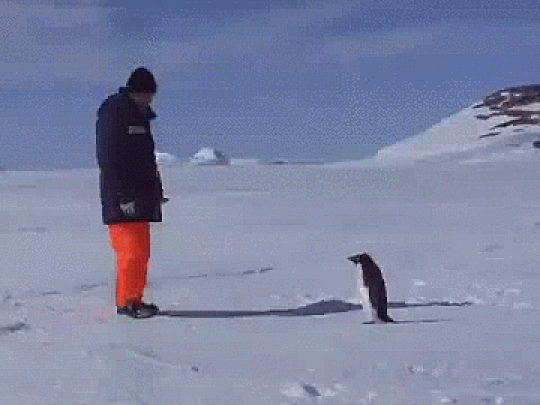
7. New research showed that acid pollution in the atmosphere is now almost back to the level that it was before it started with industrialisation in the 1930s. Science Bulletin
8. In 2012, the US and Mexico embarked on an unprecedented binational project to revive the Colorado River. By 2016, the results had astonished everyone. Audubon
9. In December, the United States and Canada announced a joint permanent ban on all offshore oil and gas activity in the Arctic. CBC News
Huge strides forward for global health

10. The World Health Organisation released a report showing that, since the year 2000, global malaria deaths have declined by 60%. WHO
11. In 2016, some of the world’s biggest diseases, like colon cancer, dementia and heart disease, started declining in wealthy countries. New York Times
12. A new study from the world’s leading health journal reported that the number of women dying from pregnancy and childbirth has almost halved since 1990. Guardian
13. Fresh evidence showed that public smoking bans have improved health in 21 nations. Wiley Blackwell
14. Uruguay won a major case against Philip Morris in a World Bank ruling, setting a precedent for other small countries that want to deter tobacco use. CS Monitor
15. Malawi achieved a 67% reduction in the number of children acquiring HIV, the biggest success story across all sub-Saharan nations. Since 2006, they’ve saved 260,000 lives. Al Jazeera
16. Child mortality rates came down by 12% in Russia. Article
17. Life expectancy in Africa has increased by 9.4 years since 2000, thanks to improvements in child survival, progress in malaria control and expanded access to ARVs. Quartz
18. Mobile phones made significant inroads in the fight against rabies, a disease which kills more people annually than all terrorists combined. Ars Technica
19. Thailand became the first country in the Asia-Pacific region to eliminate mother-to-child transmission of HIV and syphilis. World Health Organisation
20. Harvard scientists created a new platform for antibiotic discovery that may help solve the crisis of antibiotic resistance. GEN
21. Liberia was officially cleared of Ebola, meaning there are now no known cases of the deadly tropical virus left in West Africa. Vanguard
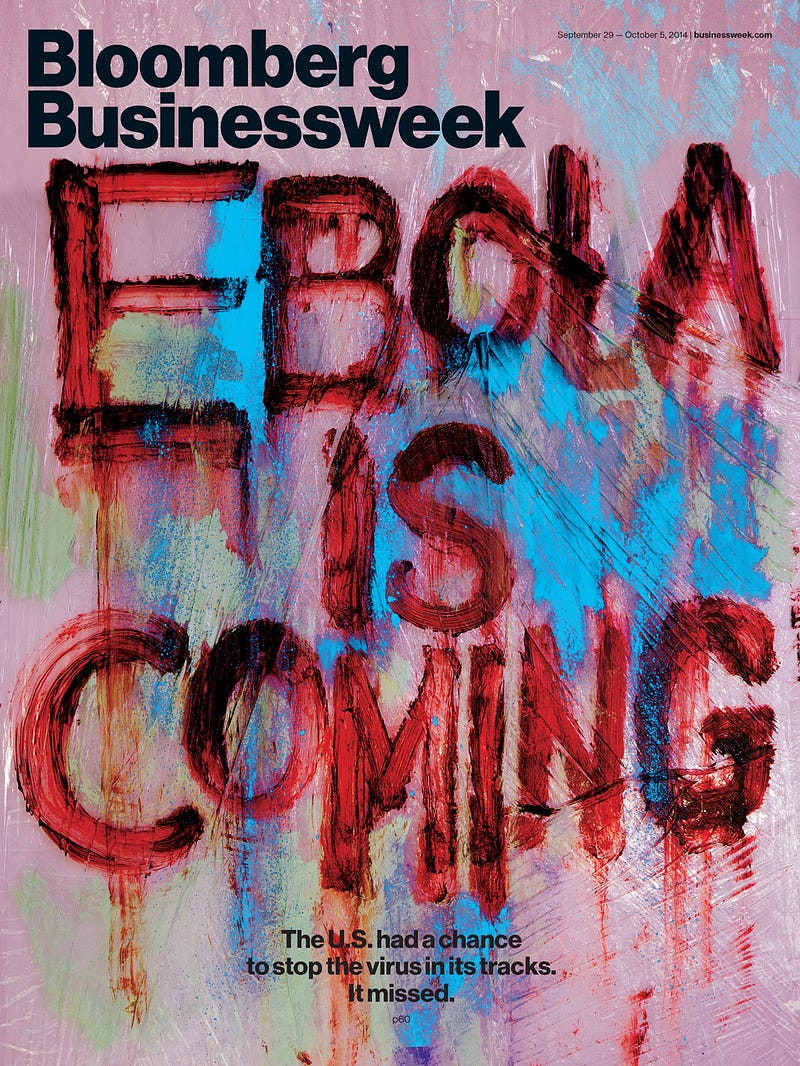
So yeah. That didn’t happen.
22. The WHO announced that measles have been eradicated in all of the Americas, from Canada to Chile. It’s the first time the disease has been eliminated from an entire world region. NBC
23. The proportion of older US adults with dementia, including Alzheimer’s declined from 11.6% in 2000 to 8.8% in 2012, a decrease of about a million people. Scientific American
24. The number of cigarette smokers in the US dropped by 8.6 million since 2005. That fall will be accelerated by a tobacco tax just passed in California. NPR
Political and economic progress in many parts of the world
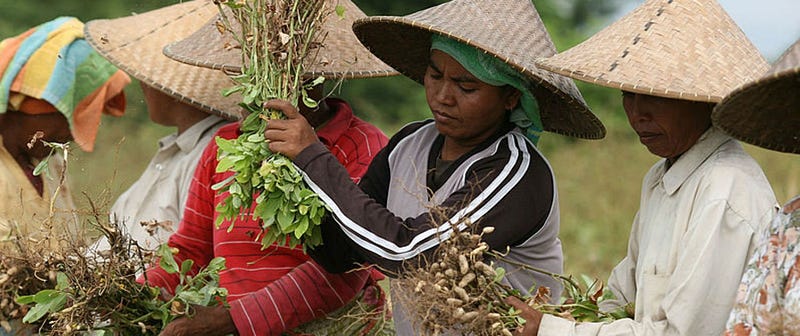
25. 93% of kids around the world learned to read and write this year. That’s the highest proportion in human history. And the gender gap between girls and boys in school narrowed in 2016 too. Medium
26. In 2016, for the first time ever, the amount of money it would take to end poverty dropped below the amount of money spent on foreign aid. Vox
27. World hunger reached its lowest point in 25 years. New York Times
28. In February, Ontario announced a $100 million initiative to curb violence against indigenous women. The Star
29. Myanmar swore in its first elected civilian leader in more than 50 years. BBC
30. Black incarceration rates fell in the United States. Not fast enough, but certainly something worth celebrating. Washington Post
31. In 1990, more than 60% of people in East Asia lived in extreme poverty. As of 2016, that proportion has dropped to 3.5%. Vox
32. Homelessness in the United States declined by 35% since 2007, and Los Angeles committed to $1.2 billion to help get more people off the street. CS Monitor
33. Taiwan is on the verge of becoming the first Asian country to legalise same-sex marriage. New York Times
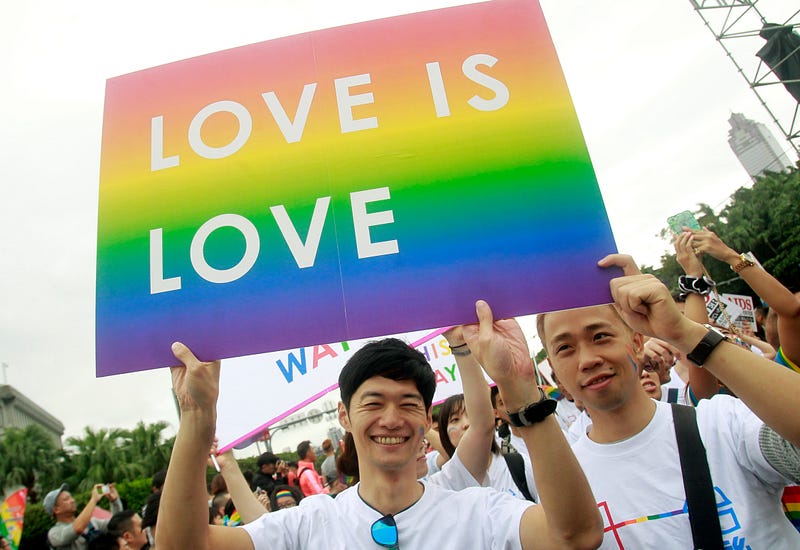
34. Gambia and Tanzania banned child marriage, following sustained lobbying by civil society groups. Independent
35. In June, after years of wrangling, the drive to end female genital mutilation in Africa made a major breakthrough, when the Pan African Parliament endorsed a continent-wide ban. The Wire
36. Germany took on rape culture, introducing a law to broaden the definition of sex crimes by zoning in on the issue of consent. Catalogue
37. Two weeks before #Brexit, the African Union announced a new single African passport that permits holders to enter any of the 54 AU member states without a visa. Washington Post
38. The United States now feeds healthy lunches to more than 30 million children, is about to ban trans fats, and has enacted one of the biggest overhauls of nutrition labels in decades. Vox

39. Italy became the last large Western country to recognise same-sex unions in 2016, following a long-running battle by campaigners. Independent
40. Denmark became the first country to no longer define being transgender as a mental illness, and Canada announced a ban on transgender discrimination. Telegraph.
41. 2016 marked the 24th year in a row that teenage pregnancy rates declined in the United Kingdom and the United States.
We finally started responding seriously to the climate change emergency
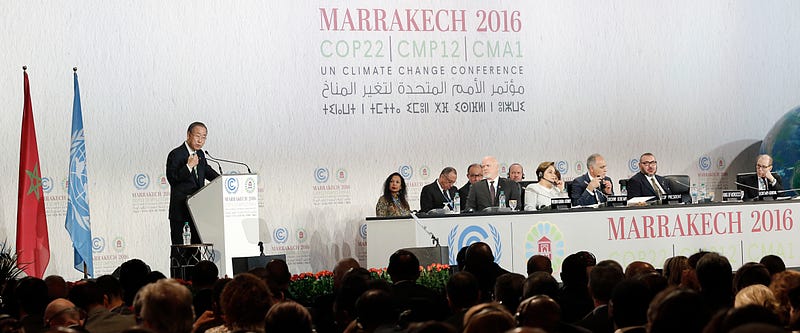
42. The Paris Agreement became the fastest (and largest) United Nations treaty to go from agreement to international law in modern history. CBS
43. Global carbon emissions from the burning of fossil fuels did not grow at all in 2016. It’s the third year in a row emissions have flatlined.Scientific American
44. Thanks to rapid technological innovation and political support from around the world, renewables now account for more newly installed capacity than any other form of electricity in the world, including coal.. Gizmodo
45. The Chinese government placed a ban on new coal mines, created new rules for grid access and doubled its renewables targets for 2020. WRI
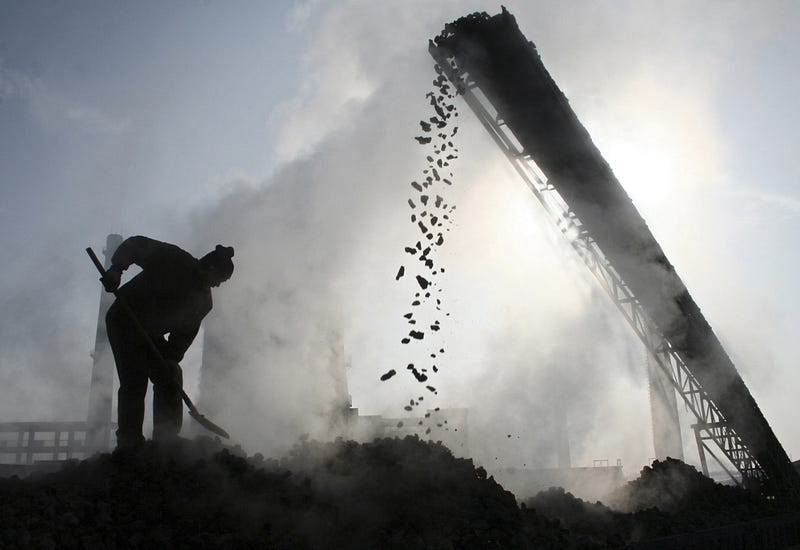
46. India announced it won’t need any new coal plants for the next three years because it’s flush with generation capacity. Times of India
47. In April, the UK’s Chatham House released a report saying “Big Oil is screwed.” Chatham House
48. In the same month, 25% of European countries announced that they had quit coal. EcoWatch
49. The BRICS New Development Bank approved $1 billion in renewables investments in China, Brazil, South Africa and India. RT
50. In 2016 Costa Rica ran solely on renewable energy for over 100 days. Now it’s aiming for an entire year with no fossil fuels. The Independent
51. In July, the USA, Mexico and Canada committed to getting 50 per cent of their electricity from renewables by 2025. Their leaders also nailed the awkward handshake thing. Time
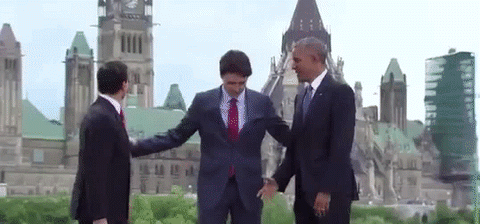
52. A new report showed that China reached peak coal in 2014. A landmark moment in the fight against climate change that was reported by every media outlet on the planet. Right? Guardian
53. China installed 20GW of solar in the first half of 2016, three times as much as during the same period a year ago. Reuters
54. In October, the International Energy Agency reported that half a million solar panels were installed each day around the world in 2015. It also drastically increased its five year growth forecast for renewables. IEA
55. In the same month, 197 countries agreed to drastically reduce their use of HFCs, and the International Civil Aviation Organisation agreed to measures to combat the impact of flying on greenhouse gas emissions. Scientific American

56. The world’s biggest offshore wind farm received the go ahead for its second phase. Guardian
57. Mexico announced $6 billion in renewables investments, Argentina $2.7 billion, Scotland connected underwater turbines to its grid for the first time, and solar energy generated more power than coal in the United Kingdom. Independent UK
58. In November, India unveiled the world’s largest solar power plant, and revealed that it is now on track to be the world’s third biggest solar market in 2017. Al Jazeera
59. And in the same month, the United Kingdom agreed to phase out coal by 2025, France said it would get there by 2023, and Germany promised to reduce emissions by 95% by 2050. Guardian
The world got less violent
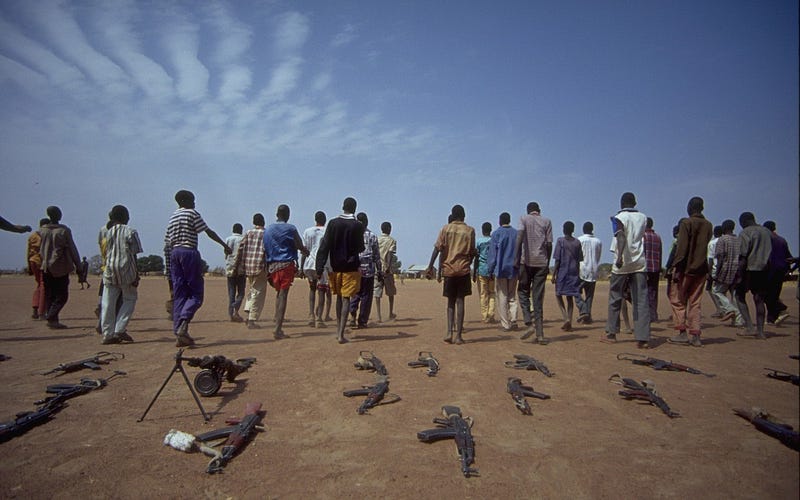
60. Following the end of conflict in Colombia in 2016, all of the war in the world is now limited to an arc that contains less than a sixth of the world’s population. Associated Press
61. ISIS quietly started preparing its followers for the eventual collapse of the caliphate it proclaimed with great fanfare two years ago. New Yorker
62. In April, a new report revealed that for the first time ever, the death penalty has become illegal in more than half of the world’s countries. Article
63. Juarez, in Mexico, used to be the world’s most dangerous city. In 2016, crime came down and residents started losing their fear. National Geographic
64. Crime rates in the Netherlands plummeted, with total recorded crime shrinking by 25% in the last eight years. One third of the country’s prison cells are now empty. Dutch News
65. Three years ago Honduras was the most dangerous place on earth. Since then community crime programs have achieved a remarkable reduction in violence. New York Times
66. Hellholes? Not according to US mayors, who in 2016 celebrated years of positive gains in US cities. Politico
Signs of hope for a life-sustaining economy

67. Good science and simple economics have started a reversal in overfishing in the United States. New York Times
68. Norway became the first country in the world to commit to zero deforestation. The Independent
69. In June, a new survey showed that the ozone hole has shrunk by more than 3.9 million square kilometres since 2006. Scientists now think it will now be fully healed by 2050. Sydney Morning Herald
70. In July, more than 800,000 volunteers in India planted 50 million trees in one day. The country is planning on reforesting 12% of its land. National Geographic
71. Later that month, Israel revealed that it now makes 55% of its freshwater. That means that one of the driest countries on earth now has more water than it needs. Ensia
72. McDonalds announced it would be removing corn syrup from its hamburger buns and removed antibiotics from its chicken months ahead of schedule. CNBC
73. By August, every major grocery and fast-food chain in the US had pledged to use only cage-free eggs by 2025. Washington Post
74. The average number of large oil spills around the world has been drastically reduced, from an average of 24.5 per year in the 1970s, to just 1.8 a year in 2015. ITOPF
75. The citizens of Mumbai conducted the largest beach clean-up in human history, removing more than 4000 tonnes of rubbish. Washington Post
76. Plastic bag use plummeted in England thanks to the introduction of a 5p charge in 2015. BBC
77. The Italian government overwhelmingly backed a new set of laws aimed at cutting down the vast amounts of food wasted in the country each year. Independent
78. In December, four of the world’s biggest cities, Paris, Madrid, Athens and Mexico City, agreed to ban diesel cars from their centres. Guardian
Endangered animals got a some well-deserved breaks
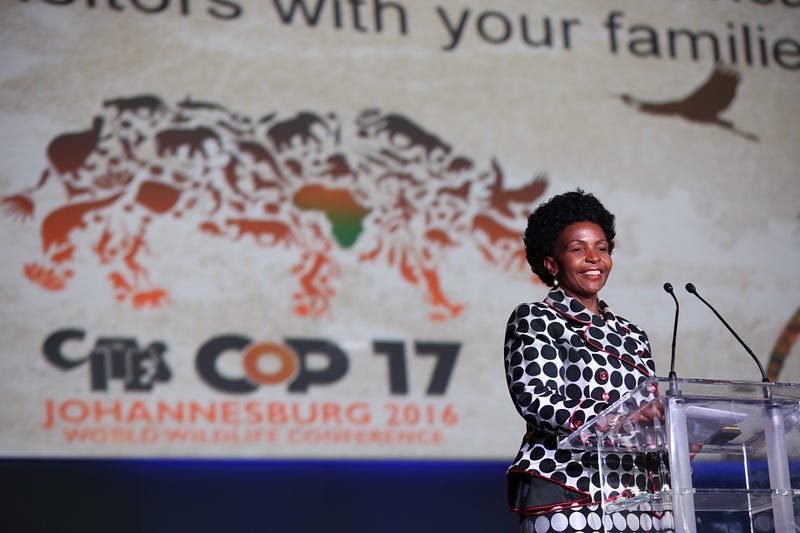
79. At this year’s CITES conference, 183 countries agreed to the strongest protections ever for endangered animals, with big wins for parrots, rhinos, porpoises, rays and elephants. Washington Post
80. In February, the U.S. Fish and Wildlife Service announced that the global manatee population is no longer endangered. Scientific American
81. Wild wolves started coming back to Europe, and for the first time since the American Revolution, wild salmon began spawning in the Connecticut River. Al Jazeera
82. In March, Yellowstone’s grizzly bears passed a major milestone, completing one of the greatest wildlife comeback stories in history. National Geographic
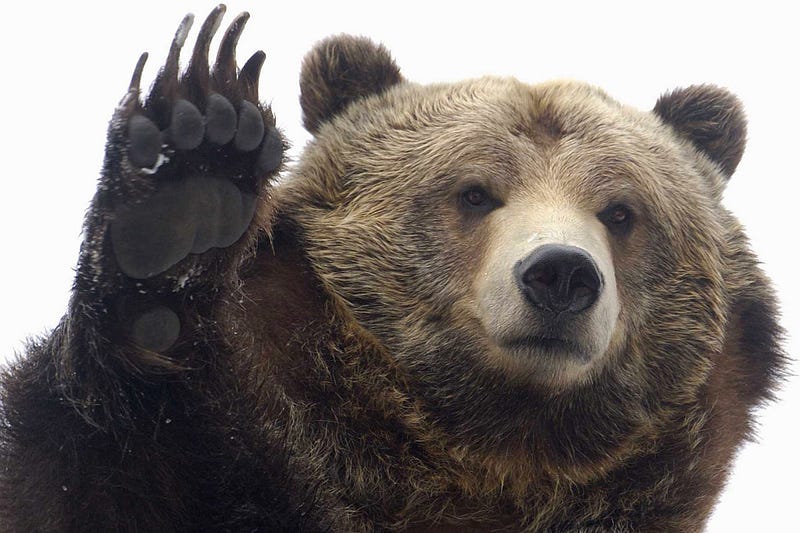
83. Fifty years ago, the Columbian white-tailed deer population was 450 animals. This year, the US Fish and Wildlife Service took it off the endangered list. CS Monitor
84. Green sea turtles in Florida and Mexico were taken off the endangered list. Huffington Post
85. Sea World agreed to stop breeding captive killer whales. NPR
86. Humpback whales were removed from the endangered species list, having fully recovered in the last 46 years. Science Mag
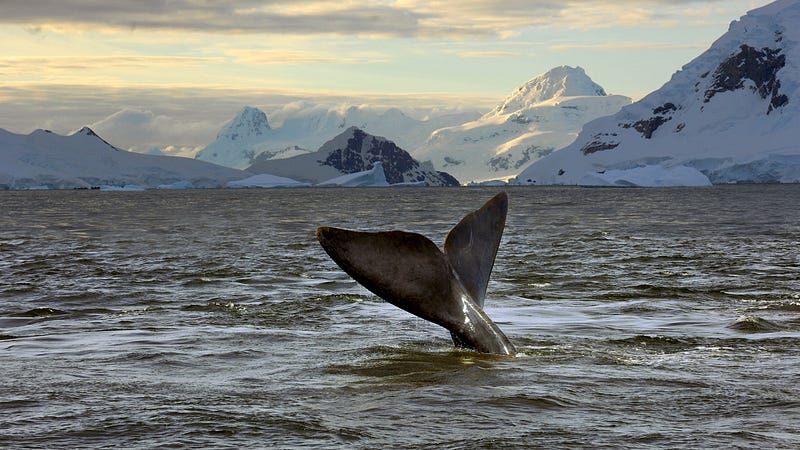
87. The US finalized new regulations to shut down commercial elephant ivory trade within its borders and stop wildlife crime overseas. WWF
88. Mongolia created one of the world’s largest protected areas for snow leopards. Snow Leopard Trust
89. In September, giant pandas became the latest species to be taken off the endangered list. Guardian
90. And in 2016, for the first time, we heard that the number of tigers in the wild rose for the first time in 100 years. National Geographic
The world got more generous
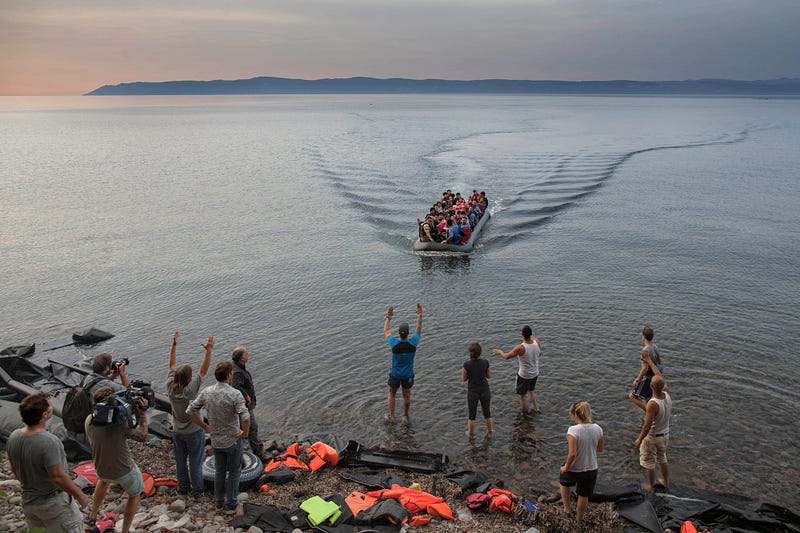
91. At the beginning of the year, we heard that global spending on aid and development increased by 7%, and spending on refugees has doubled. OECD
92. In April, Pony Ma Huateng, the chief executive of the Chinese internet giant Tencent, donated $2 billion to charity. South China Morning Post
93. 2015 was America’s most generous year ever, with charitable donations from individuals, estates, foundations and corporations reaching record highs. 2016 is on track to be even bigger. Associated Press

94. In 2016, charitable giving in China rose to $15 billion, a 10 fold increase from just a decade ago Bloomberg
95. Online crowdfunding raised almost $1 million for the kids of Alton Sterling and Philando Castile to go to college.
96. Warren Buffett gave $2.9 billion to charity, again. And his son, a farmer and environmentalist, quietly continued to spend his billion dollar inheritance on sustainable agriculture and hunger eradication. The Atlantic
97. The Gates Foundation announced another $5 billion in charity for Africa. They also tweeted this video about progress on malaria.
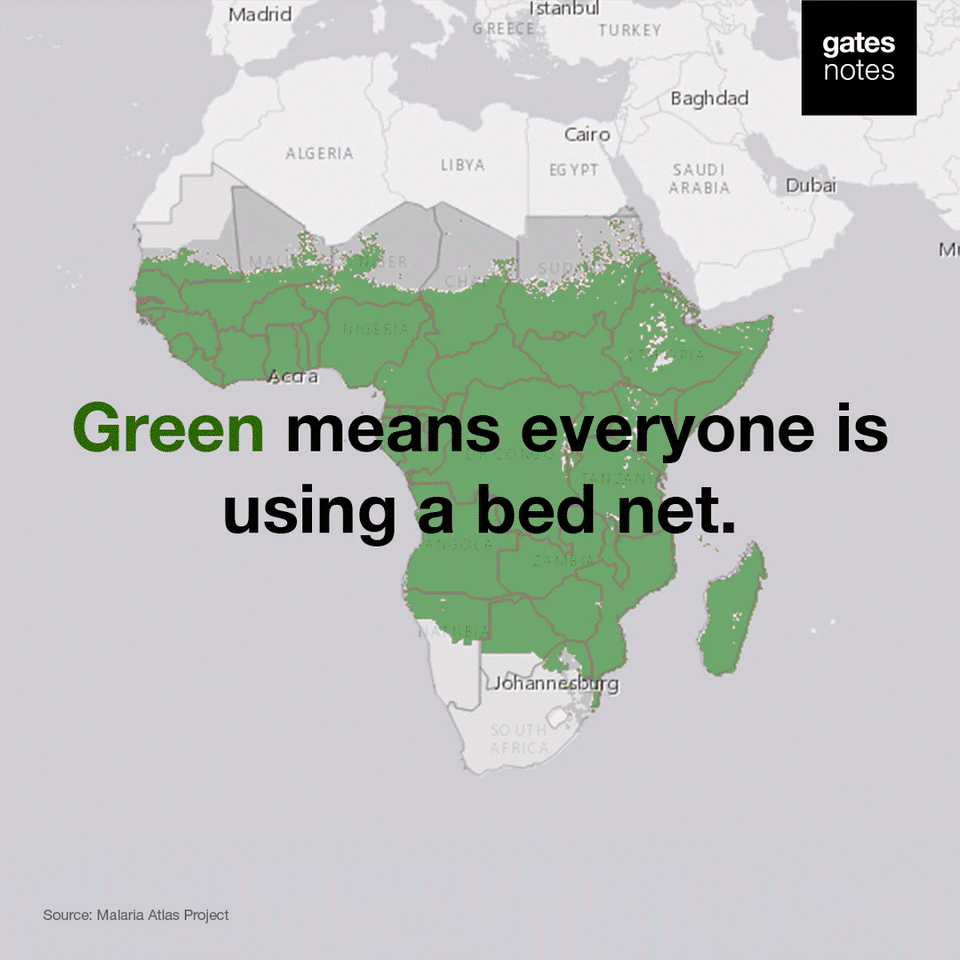
98. Germany took in an additional 300,000 refugees in 2016, despite growing concerns about integration and a backlash from populists. Guardian
99. In Canada, hockey moms, poker buddies and neighbors took in Syrian refugees, one family at a time. New York Times

Future Crunch fosters intelligent, optimistic thinking for the future. We help people understand what’s on the frontiers of science, technology and human progress, and what it means for humanity
Our fortnightly newsletter is filled with stories about people from around the planet who are using science and technology to make the world a better place.




